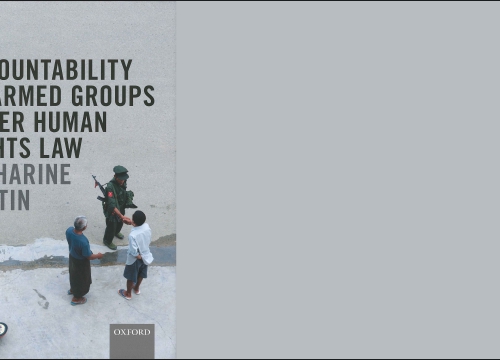Book Launch: ‘The Accountability of Armed Groups under Human Rights Law’
Event
This event marks the launch of Dr Katharine Fortin’s new book ‘The Accountability of Armed Groups under Human Rights Law’ (OUP, 2017)
The book explores the dilemma that although it is increasingly common for UN bodies to hold armed groups to account under human rights law, there has long remained doubt about the extent to which this practice can be legally justified. Employing a theoretical, historical and comparative analysis that spans international humanitarian law, international criminal law and international human rights law, the book brings significant new understanding to the question of whether and when armed groups might be bound by human rights law. In doing so, the book draws upon social science literature on armed conflict to present a new viewpoint on the role that human rights law plays vis-à-vis international humanitarian law in armed conflicts.
Panelists
- Andrew Clapham, Professor, Graduate Institute of International and Development Studies
- Katharine Fortin, Assistant Professor, Utrecht University
- Ezequiel Heffes, Thematic Legal Advisor, Geneva Call
Moderation
- Tom Gal, Teaching Assistant, Geneva Academy
- Sandra Krähenmann, Research Fellow, Geneva Academy








